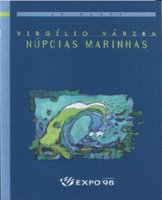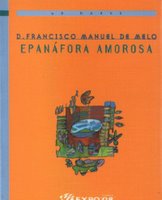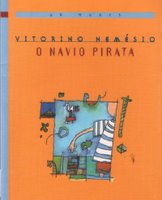sexta-feira, 29 de setembro de 2006
Internet child abuse
The innocent victims of Internet child abuse cannot speak for themselves.
But you can.
With your help, we can eradicate this evil trade.
We do not need your money.
We need you to light a candle of support .
We're aiming to light at least One Million Candles by December 31, 2006.
This petition will be used to encourage governments, politicians, financial institutions, payment organisations, Internet service providers, technology companies and law enforcement agencies to eradicate the commercial viability of online child abuse.
They have the power to work together. You have the power to get them to take action.
Please light your candle at lightamillioncandles.com or send an email of support to light@lightamillioncandles.com.
Together, we can destroy the commercial viability of Internet child abuse sites that are destroying the lives of innocent children.
quinta-feira, 28 de setembro de 2006
The Lake House
É uma comédia romântica com algo de teenager, mas sem a parte parva. :)
No site tem uma ideia muito engraçada...
http://www2.warnerbros.com/lakehouse/
Clickem na caixa de correio que diz "Tell it to the future", mandem uma mensagem a vós próprios.. para receberem daqui a uns anos.
segunda-feira, 25 de setembro de 2006
First Evidence That Musical Training Affects Brain Development In Young Children
The findings, published today (20 September 2006) in the online edition of the journal Brain [1], show that not only do the brains of musically-trained children respond to music in a different way to those of the untrained children, but also that the training improves their memory as well. After one year the musically trained children performed better in a memory test that is correlated with general intelligence skills such as literacy, verbal memory, visiospatial processing, mathematics and IQ.
The Canadian-based researchers reached these conclusions after measuring changes in brain responses to sounds in children aged between four and six. Over the period of a year they took four measurements in two groups of children -- those taking Suzuki music lessons and those taking no musical training outside school -- and found developmental changes over periods as short as four months. While previous studies have shown that older children given music lessons had greater improvements in IQ scores than children given drama lessons, this is the first study to identify these effects in brain-based measurements in young children.
Dr Laurel Trainor, Professor of Psychology, Neuroscience and Behaviour at McMaster University and Director of the McMaster Institute for Music and the Mind, said: "This is the first study to show that brain responses in young, musically trained and untrained children change differently over the course of a year. These changes are likely to be related to the cognitive benefit that is seen with musical training." Prof Trainor led the study with Dr Takako Fujioka, a scientist at Baycrest's Rotman Research Institute.
The research team designed their study to investigate (1) how auditory responses in children matured over the period of a year, (2) whether responses to meaningful sounds, such as musical tones, matured differently than responses to noises, and (3) how musical training affected normal brain development in young children.
At the beginning of the study, six of the children (five boys, one girl) had just started to attend a Suzuki music school; the other six children (four boys, two girls) had no music lessons outside school.
The researchers chose children being trained by the Suzuki method for several reasons: it ensured the children were all trained in the same way, were not selected for training according to their initial musical talent and had similar support from their families. In addition, because there was no early training in reading music, the Suzuki method provided the researchers with a good model of how training in auditory, sensory and motor activities induces changes in the cortex of the brain. Brain activity was measured by magnetoencephalography (MEG) while the children listened to two types of sounds: a violin tone and a white noise burst. MEG is a non-invasive brain scanning technology that measures the magnetic fields outside the head that are associated with the electrical fields generated when groups of neurons (nerve cells) fire in synchrony. When a sound is heard, the brain processes the information from the ears in a series of stages. MEG provides millisecond-by-millisecond information that tracks these stages of processing; the stages show up as positive or negative deflections (or peaks), called components, in the MEG waveform. Earlier peaks tend to reflect sensory processing and later peaks, perceptual or cognitive processing.
The researchers recorded the measurements four times during the year, and during the first and fourth session the children also completed a music test (in which they were asked to discriminate between same and different harmonies, rhythms and melodies) and a digit span memory test (in which they had to listen to a series of numbers, remember them and repeat them back to the experimenter).
Analysis of the MEG responses showed that across all children, larger responses were seen to the violin tones than to the white noise, indicating that more cortical resources were put to processing meaningful sounds. In addition, the time that it took for the brain to respond to the sounds (the latency of certain MEG components) decreased over the year. This means that as children matured, the electrical conduction between neurons in their brains worked faster.
Of most interest, the Suzuki children showed a greater change over the year in response to violin tones in an MEG component (N250m) related to attention and sound discrimination than did the children not taking music lessons.
Analysis of the music tasks showed greater improvement over the year in melody, harmony and rhythm processing in the children studying music compared to those not studying music. General memory capacity also improved more in the children studying music than in those not studying music.
Prof Trainor said: "That the children studying music for a year improved in musical listening skills more than children not studying music is perhaps not very surprising. On the other hand, it is very interesting that the children taking music lessons improved more over the year on general memory skills that are correlated with non-musical abilities such as literacy, verbal memory, visiospatial processing, mathematics and IQ than did the children not taking lessons. The finding of very rapid maturation of the N250m component to violin sounds in children taking music lessons fits with their large improvement on the memory test. It suggests that musical training is having an effect on how the brain gets wired for general cognitive functioning related to memory and attention."
Dr Fujioka added: "Previous work has shown assignment to musical training is associated with improvements in IQ in school-aged children. Our work explores how musical training affects the way in which the brain develops. It is clear that music is good for children's cognitive development and that music should be part of the pre-school and primary school curriculum."
The next phase of the study will look at the benefits of musical training in older adults.
quinta-feira, 21 de setembro de 2006
quarta-feira, 20 de setembro de 2006
sexta-feira, 15 de setembro de 2006
quinta-feira, 14 de setembro de 2006
domingo, 10 de setembro de 2006
quinta-feira, 7 de setembro de 2006
Só não lê quem não quiser
Ahh... Também há catálogos dos pavilhões da antiga Exposição, ao preço da uva mijona...
Francamente... :)


























